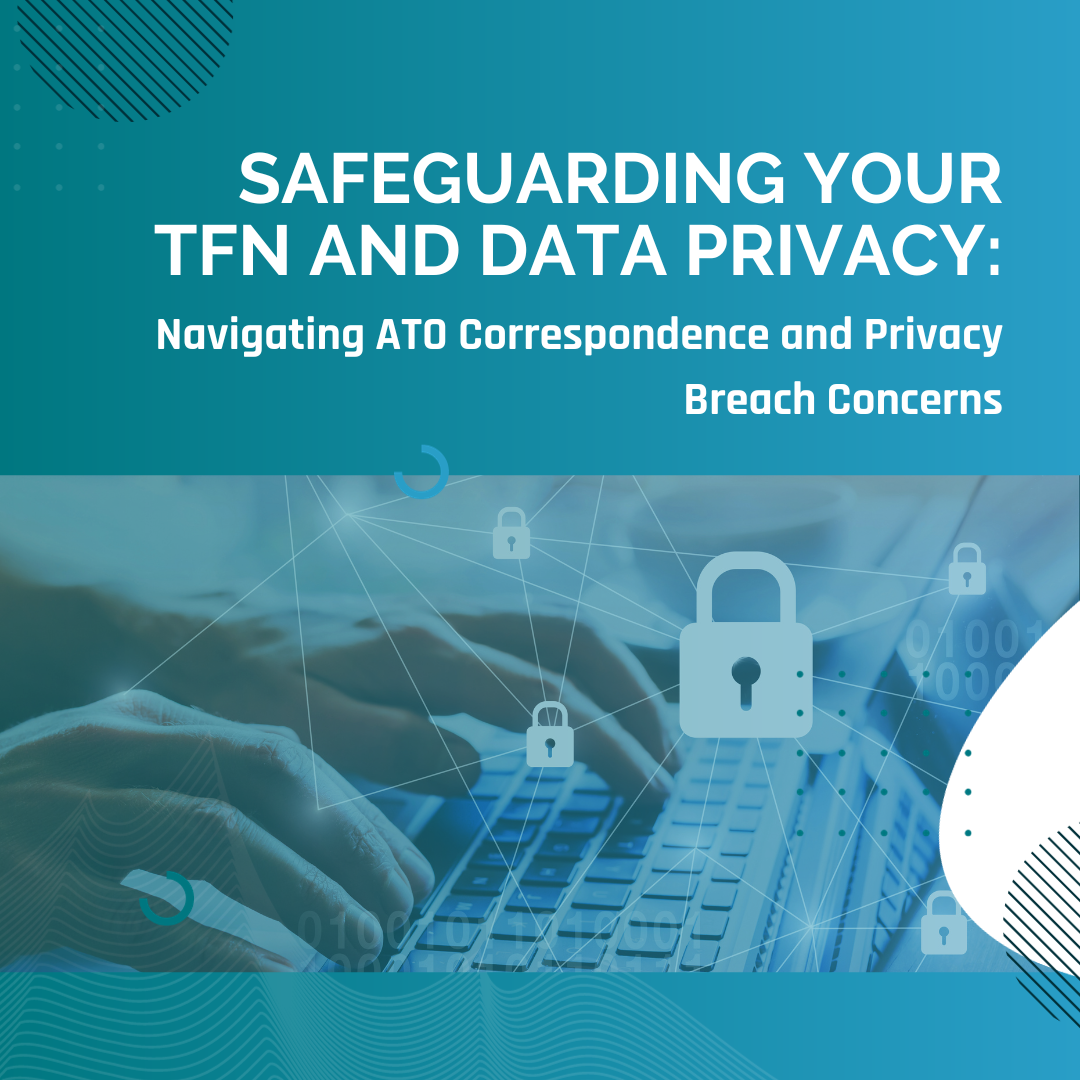
In our increasingly digital world, data privacy breaches have become a prevailing concern for individuals and businesses alike. Particularly sensitive information, such as Tax File Numbers (TFNs), can be an easy way in for malicious attackers. Attacks on institutions to attempt to obtain this type of data are growing, and it is understandably concerning if you are notified of such a breach of your personal data held by a third party. Furthermore, scammers purporting to be the ATO target individuals daily to attempt to obtain data such as this. It’s important to know how to protect your personal information and understand what the ATO can do to assist in this regard.
The Growing Threat: Data Privacy Breaches and TFNs
In recent times, the issue of data privacy breaches has gained prominence due to the escalating number of cyberattacks and scams. Cybercriminals are increasingly targeting sensitive personal and financial information, including TFNs. Attacks are not limited to targeting the individual, they are also targeting larger institutions for bulk data, such as Superannuation Funds, Telecommunications providers or Financial Institutions. While regulations exist relating to the storage and security of such data, breaches can and do still occur.
Legislation requires all data breaches discovered are to be reported to Government regulatory bodies, the ATO, and the affected individuals. Because of this, we have been seeing more of this in the news, and some of you could have already been given advice that your data security has been breached. It can be concerning to find out that an attacker may have accessed your personal data, and more concerning to consider how that data may be used.
The ATO has a number of strategies that they employ in relation to managing possible fraudulent activity involving someone’s TFN. There are significant resources allocated to identify and halt questionable interactions with the ATO, such as fraudulent lodgements of tax returns or BAS statements. The ATO systems can and do halt a lot of these lodgements before they are processed. As an additional safety TFNs can be automatically “locked” by the ATO which does not allow any transactions, or correspondence, without direct contact with the ATO and identity details being confirmed.
If you do feel your TFN has been compromised, it is best to contact the ATO straight away to discuss your concerns and they can advise what action may be appropriate to protect you in your situation. Locking TFNs is a last resort, as it does make dealing with the ATO much more cumbersome but does help alleviate issues that would otherwise arise due to fraudulent activity.
Authenticating ATO Correspondence: Protecting Your Privacy
While we can’t do a lot to influence how our data is protected by third parties, we can ensure that we don’t fall victim to scammers personally. It’s crucial to be vigilant and cautious when interacting with ATO-related correspondence. Here’s how you can authenticate ATO communications to ensure their legitimacy:
- Check the Sender’s Details: Verify the sender’s email address or contact information. Official ATO communications will typically come from “@ato.gov.au” domains. Be cautious of misspellings or slight variations that cybercriminals may use.
- Use ATO’s Online Services: When in doubt, access your ATO-related communications through the secure online services provided via MyGov. This ensures that you’re accessing information from a trusted source.
- Avoid Clicking on Links: If an email or message from the ATO instructs you to click on a link, refrain from doing so directly. Instead, manually type the official ATO website/MyGov address into your browser to access any relevant information.
- Stay Informed: Regularly check the ATO’s official website or other reliable sources for updates on potential scams or data breaches. Staying informed about the latest threats can help you stay one step ahead of cybercriminals.
- Contact your Accounting Adviser if in any doubt. They have the ability to check the ATO’s systems directly for any correspondence, or balances of your ATO accounts, to confirm if any correspondence you have received is legitimate. They are also authorised and happy to discuss all of your affairs with the ATO on your behalf.
Mitigating Risks
- Education and Awareness: The ATO conducts awareness campaigns to educate taxpayers about potential scams and data breach threats. These initiatives empower individuals and businesses to identify and report suspicious activities.
- Two-Factor Authentication (2FA): The ATO has implemented 2FA for certain online services, adding an extra layer of security to prevent unauthorised access. If this is available for any systems or services you use, enabling it is invaluable to help protect your information.
- Early Action: If you see anything that appears to be abnormal or different to expectations, following this up directly with the party involved (be it the ATO, your financial institution, your super fund, etc) is the best course of action. This will identify any malicious activity so preventative actions can be taken as soon as possible.
Protecting your TFN and data privacy is paramount in today’s digital landscape. With cyber threats on the rise, understanding how to authenticate ATO correspondence and staying informed about potential risks is crucial. The ATO’s efforts to combat larger privacy breaches are commendable, but individuals and businesses must also take proactive measures to secure their sensitive information where at all possible. By remaining vigilant and following best practices, we can collectively contribute to a safer digital environment and preserve the integrity of our financial information.
Reach out to your trusted Altitude Adviser today for personalised data protection guidance.


